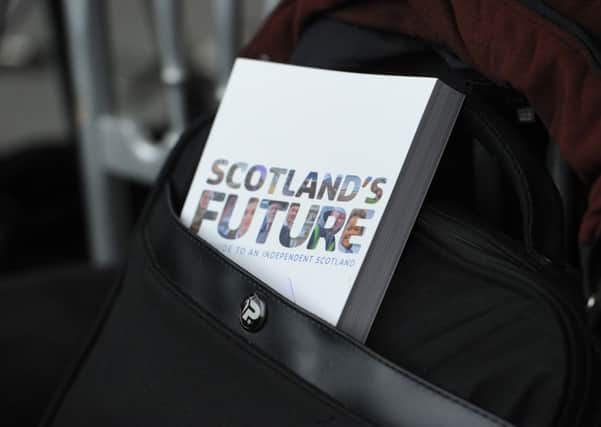David Maddox: Independence impartiality under scrutiny


The committee is investigating potential breaches of civil service impartiality by those working for both the UK and Scottish Governments in the independence referendum, but the main focus will not be journalists today, but the man some accuse of being a culprit: the head of the Scottish Government civil service, Sir Peter Housden.
There are concerns that civil servants right up to a senior level in the Scottish Government are being drafted into political campaigning rather than merely supporting government policy. A freedom of information request by Labour MP Gregg McClymont has just been returned from the Scottish Government which reveals that, since the launch of the independence white paper in November, more than 30 senior mandarins took part in 13 events around Scotland, which a Labour MP described as an “independence roadshow”.
Advertisement
Hide AdAdvertisement
Hide AdPrevious controversies have included Transport Scotland tweeting “Powers of Independence would better support transport” and Sir Peter himself criticising coalition health policy, although he was cleared in an official investigation by the head of the UK civil service of breaching impartiality in 2011.
Better Together supporters asked in the recent controversy over CBI Scotland’s support for the No campaign whether organisations which receive funding from the Scottish Government were pressured to resign their membership. Complaints have been made about the language of the white paper which talked – pejoratively, to some eyes – of “Westminster” not “UK” parliament and government.
Equally there are concerns about the actions of Whitehall-based civil servants, mainly centring around the Scotland Office and Treasury. Sir Nicholas Macpherson, permanent secretary to the Treasury, has already given evidence regarding his role in drawing up the UK government’s independence analysis papers and recommendation that a future UK government should not agree to a sterling currency zone after a Yes vote. The question is whether that was real advice or part of a campaign.
In the end, though, civil servants have to help governments achieve their policies. In this case one government wants Scotland in the UK, the other wants independence.
But the reason for this inquiry may have a European element. Committee chairman Bernard Jenkin, a eurosceptic, may want to make sure in a potential EU referendum that the government machine is not used to campaign for the UK to stay in.